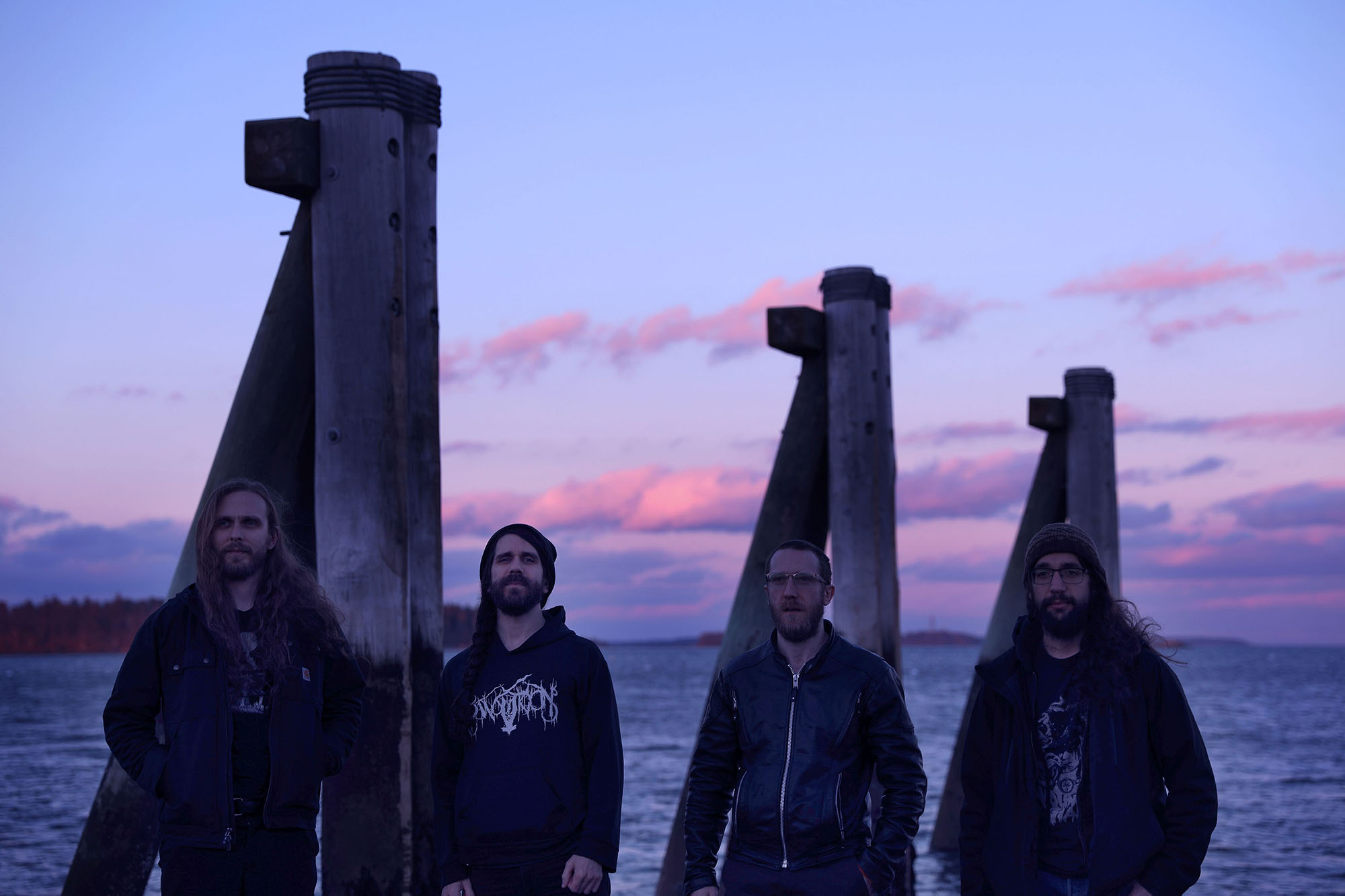If it's not readily apparent from the influx of posts dedicated to more traditional forms of extreme metal, I've mostly given up on good ol' metalcore. Yes, after one too many internet arguments (none of which I'm proud of), I started to cultivate an interest in black metal, and moved in that direction. It's a little unfortunate, because there's still quite a lot of very good metalcore - the Chariot (RIP :( ), Converge, and Norma Jean to name just three - but for every fan of theirs are ten yowling Oli Sykes fangirls.
Since I was introduced to the genre with A Day to Remember, I've had a strange sort of fascination with Buffalo act Every Time I Die - a band that has continuously been on my top 10 list since 2009. Something about that unique blend of powerviolence and Southern rock just keeps reeling me in. Just this morning, I was listening to 'Recovery Mode' off their newest album Ex-Lives when I realized that, while it's no secret that frontman Keith Buckley writes some of the best lyrics in the genre ("I only marvel at existence in the language existence permits/Most hearts make terrible sounds so I laugh, laugh, laugh" - 'Touch Yourself'), there was definitely something there I'm not getting.
Buckley's cynicism and sense of sarcasm are as sharp as a sword - whether it's likening suicide to marriage ("Drag the lake, you'll find it full of love") or brutally criticizing other bands ("This labyrinth that we're puzzled by is nothing more than a straight line"), he somehow manages to make anything discussed seem that much more futile.
My first thought was that the band's songs are purely pessimistic, but that idea didn't sit well with me for two reasons - the first being that, for an act so sardonic to fall into the tired tropes of metalcore seemed both unfortunate and unlikely. Secondly, pessimism doesn't account for the bitter mockery Buckley levels at any sort of institution - 'The Logic of Crocodiles' is a jab at businessmen, spouting "I'm a very important person, I've acquired a genetically altered handshake capable of speeds up to 30 miles per hour". Pure pessimism wouldn't be interested in making jokes, but would fixate on the negative consequences of a particularly corrupt businessman, for example.
So then, with what are we left? Well, in my opinion the band seems to favor an Absurdist philosophy more than anything else. What's Absurdism, then? To put it briefly, Absurdist philosophy claims that human attempts to impose order on a chaotic universe are doomed to fail - the universe is 'untameable', it has its natural way of things, and in attempting to make things more ordered, we will never succeed. To that end, as we dwell and interact with institutions and ideas that impose 'order' on the world, we are hopping on board a sinking ship. Albert Camus' essay 'the Myth of Sisyphus' pens Sisyphus - who was doomed by the gods of Olympus to eternally push a boulder up a hill, only to have it roll down when he reached the summit - as the perfect example of an absurd hero. Sisyphus is forced to spend eternity accomplishing nothing - which ties in to absurdism in that all human accomplishments are utterly meaningless.
That's great, but how does that tie back into Every Time I Die? Well, take the lyrics to 'Gloom and How it Gets That Way':
The faulty mechanism of hope has disintegrated.
Your captain nailed his feet to someone else's ship at the sight of me.
Do what your mother tells you and put down the sheriff's horse.
The choir on the black box rejoiced splendidly, singing hallelujah the king is dead.
The king is dead. (source)
Your captain nailed his feet to someone else's ship at the sight of me.
Do what your mother tells you and put down the sheriff's horse.
The choir on the black box rejoiced splendidly, singing hallelujah the king is dead.
The king is dead. (source)
To begin, 'the faulty mechanism of hope has disintegrated'. If that doesn't scream Absurdist, you tell me. The remaining four lines are a bit more difficult to analyze - but read over them and Buckley paints a chaotic picture, hopping back and forth from a captain to a choir to a mother. It's almost humorous in terms of how bizarre everything clashes together. But that's just topical - the captain who flees his own ship, the disobedient child, and the dead king all have one unifying theme: the departure of order.
Alternatively, here are some lyrics from 'Imitation is the Sincerest Form of Battery':
Retract the accolade the candid acclaim
Inspiration is cutting its loss
Regurgitate headlines or a theory on modern art
You've been fooled again, the red herrings a joke (source)
Inspiration is cutting its loss
Regurgitate headlines or a theory on modern art
You've been fooled again, the red herrings a joke (source)
The song, itself a jab at self-styled art critics, again has a particularly telling first line - 'Retract the accolade' - in which Buckley implores the listener to undo false order in the form of praise. The remaining three lines are pure sarcasm. The personification of inspiration 'cutting its loss' next to 'regurgitate headlines or a theory of modern art' is a subtle put-down, and the last line cements the idea that these hipsters really don't know what they're talking about. Buckley's exasperation with them, conveyed by sarcastic praise, seems to be semi-Absurdist because he is condemning attempts to understand art - which, due to its myriad of interpretations, is impossible to truly understand. Totally Absurdist.
Hell, even the name of the band - Every Time I Die - is absurd. How many times do you die?
Hell, even the name of the band - Every Time I Die - is absurd. How many times do you die?
I'm well aware that most of this is going to sound like BS, but this idea has been hopping around my head for quite some time, and I'd like to put it down on paper (or, in this case, the internet). I'm also tempted to believe this is the case because Buckley used to be an English teacher, so he's definitely at least a little versed in some philosophy.
PS Sorry about the weird formatting, not sure what happened.
PS Sorry about the weird formatting, not sure what happened.



